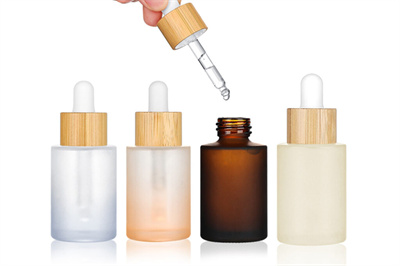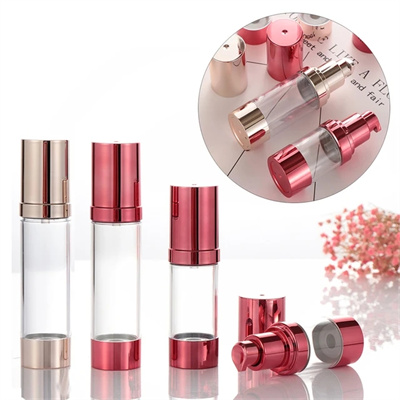Understanding the Distinction Between Glass and Plastic Serum Bottles
May 21, 2024
Serum bottles are a crucial component of the skincare and cosmetic industry. They are used to store and preserve various serums, creams, and lotions. When it comes to selecting the right bottle for your product, you have two main options: glass or plastic. Both materials have their own unique characteristics and advantages. In this article, we will explore the differences between glass and plastic serum bottles.
One of the primary differences between glass and plastic serum bottles is their material composition. Glass bottles are made from natural materials such as sand, soda ash, and limestone. On the other hand, plastic bottles are typically made from synthetic polymers, such as polyethylene terephthalate (PET) or high-density polyethylene (HDPE). This fundamental distinction in materials leads to several contrasting properties.

Firstly, glass bottles are more durable and resistant to scratches compared to plastic bottles. They have a higher level of chemical resistance, which means they are less likely to react with the contents of the bottle. This is particularly important for serums and skincare products that may contain active ingredients or acids. Glass bottles also have a longer shelf life and can be reused multiple times without compromising the quality of the product.
In contrast, plastic bottles are lightweight and less prone to breakage. They are a popular choice for travel-sized serum bottles due to their portability and convenience. Plastic bottles are also more flexible, making them easier to squeeze and dispense the product. Additionally, plastic bottles are generally more affordable than glass bottles, making them a cost-effective option for manufacturers.

Another significant difference between glass and plastic serum bottles is their environmental impact. Glass bottles are considered more environmentally friendly because they are recyclable and have a lower carbon footprint compared to plastic bottles. Glass can be recycled repeatedly without losing its quality or purity. Plastic bottles, on the other hand, are recyclable but have limitations. They can only be recycled a limited number of times before their quality degrades. Additionally, plastic bottles take a significantly longer time to decompose in landfills, contributing to environmental pollution.
Furthermore, glass bottles offer better product visibility. The transparency of glass allows customers to see the color, texture, and consistency of the serum or lotion inside. This can be an essential factor for consumers when making purchasing decisions. Plastic bottles, although available in various colors and opacities, do not offer the same level of clarity as glass bottles.
Lastly, the aesthetic appeal of glass and plastic serum bottles differs. Glass bottles are often associated with a more luxurious and high-end image. The weight and feel of glass give a sense of quality and sophistication. Plastic bottles, on the other hand, are more practical and functional in appearance. They are commonly used for everyday products and are often chosen for their affordability rather than their aesthetic appeal.
In conclusion, the choice between glass and plastic serum bottles depends on various factors, including the product's characteristics, intended use, and environmental considerations. Glass bottles offer durability, chemical resistance, and better product visibility, but they are heavier and more expensive. Plastic bottles are lightweight, affordable, and convenient, but they have a shorter lifespan and contribute to environmental pollution. Ultimately, manufacturers and consumers must weigh these factors to select the most suitable option for their specific needs.
If you are looking to elevate your skincare brand with premium packaging solutions, consider the unique benefits of glass and plastic serum bottles to showcase your product effectively and attract discerning consumers in the competitive beauty market.
